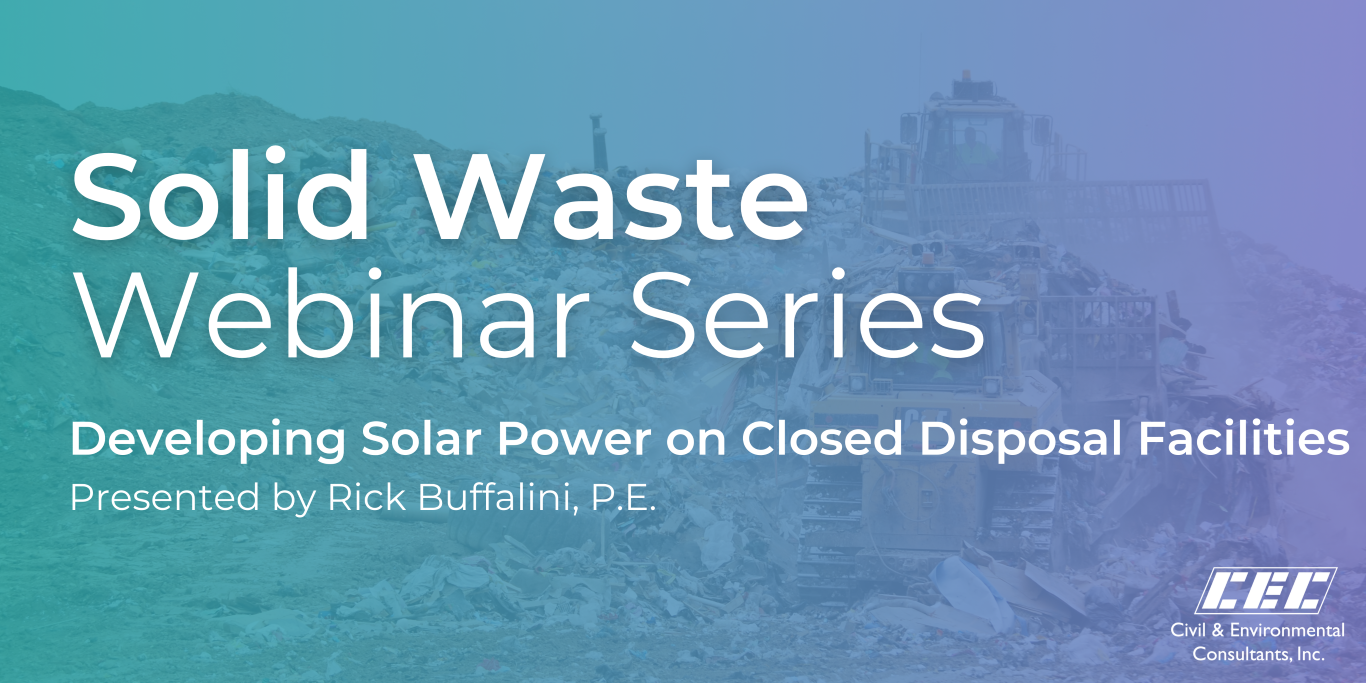Solid Waste Webinar: Developing Solar Power on Closed Disposal Facilities
July 19, 2022 @ 1:00 pm - 2:00 pm EDT

Changes in energy markets and regulations providing incentives for renewable energy have resulted in an increased interest in developing solar projects in many areas of the United States. Closed municipal solid waste (MSW) landfills and coal combustion residual (CCR) landfills and impoundments provide an opportunity for solar power development but also present challenges that need to be considered. Projects can provide both economic return to the facility owner and positive public relations in using the property in an environmentally beneficial way.
Closed disposal facilities are typically relatively large, open areas that are generally not suitable for other types of development. However, the light weight and flexibility of solar power systems makes placement on closed disposal sites feasible. Many older MSW landfills have relatively flat slopes which is conducive to solar development projects. This presentation reviews the current energy market and regulatory conditions that are resulting in increased solar energy production. The presentation addresses the technical and regulatory challenges associated with developing solar power projects at several closed MSW landfills and CCR surface impoundments. Several case studies will be presented that address the various types of disposal facilities and regulatory/design challenges. Projects range in size from 30 acres to over 100 acres. The disposal facilities have solid/residual waste permits and NPDES permits. Project development required obtaining approvals from the regulatory agencies to modify the permits to construct the solar power facility on the closed sites.
The permit modifications needed to address installing the solar panel racking system on the existing cap system without damaging the cap. Foundations for the solar panels included concrete ballasts or driven posts/ground screws. The design of driven posts/ground screws addressed the site-specific characteristics of the waste to determine the required length of the post to resist wind uplift. The repair of the existing cap system when using driven posts was also addressed.
Another design issue on certain projects is addressing areas that are too steep for efficient solar panel layout. For these areas, limited site grading is required resulting in repairing the cap system as needed. The solar projects must be designed around existing leachate management system structures and gas collection and control system components and provide access to maintain and operate these systems. Other design and permitting requirements include designing potential changes to the site surface water management system and providing financial assurance for the solar project. Several of the sites were located in the 100-year floodplain which required revision as part of the project.
Note: This presentation will be recorded for internal training purposes only.
Featured Speakers
Rick Buffalini, P.E.
